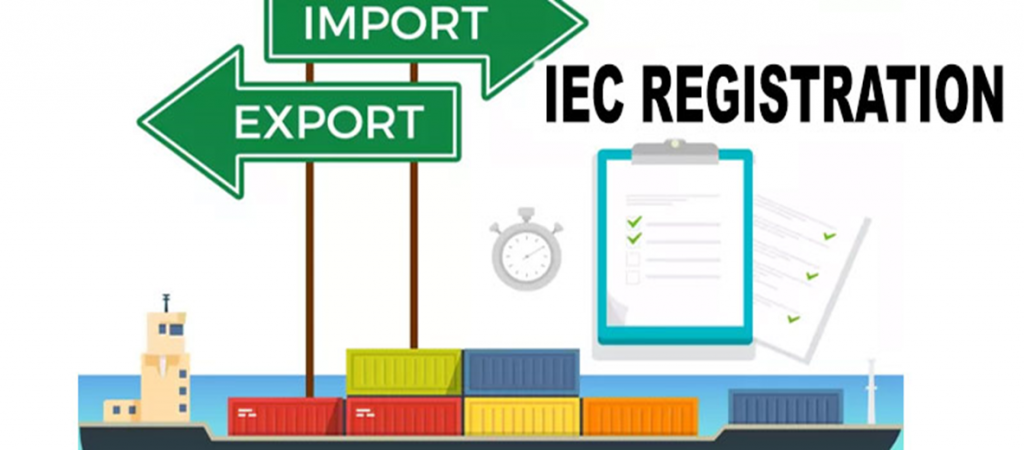Import-Export Code (IEC) Registration

Globalization has made international trade more accessible than ever, allowing businesses of all sizes to expand their reach beyond local markets. In India, however, one of the essential prerequisites for engaging in international trade is obtaining an Import Export Code (IEC). Whether you’re looking to import raw materials or export finished goods, the IEC is an indispensable asset.
For businesses like Parinitha that specialize in import-export (IEC) registration, understanding the process and advantages of this license can help entrepreneurs and established businesses alike seize new opportunities in the global market. This guide will walk you through everything you need to know about IEC registration, the documents required, benefits, and more.
What is Import-Export Code (IEC)?
The Import Export Code (IEC) is a 10-digit identification number issued by the Directorate General of Foreign Trade (DGFT), under the Ministry of Commerce and Industry, Government of India. It is mandatory for any business engaged in international trade. IEC serves as the primary license for companies involved in:
- Importing goods or services into India
- Exporting goods or services outside India
With IEC, businesses can legally conduct cross-border transactions, secure customs clearances, and access various government schemes and incentives designed to promote trade.
Key Benefits of IEC Registration
IEC is more than just a registration code; it serves as a gateway for businesses aiming to tap into the global market. Here are some of the primary benefits of obtaining an IEC:
Expansion of Business Opportunities:
With an IEC, companies gain access to global markets, allowing them to connect with new customers, partners, and suppliers. This can lead to exponential growth by diversifying revenue streams beyond local markets.Government Schemes and Incentives:
The Indian government offers a range of subsidies, duty drawbacks, and other incentives to promote exports. With an IEC, businesses are eligible to apply for and benefit from these schemes, helping to reduce costs and increase profitability.Easier Customs and Banking Processes:
An IEC is necessary for obtaining customs clearances for shipments entering or leaving India. Additionally, banks require an IEC to process transactions related to foreign trade, making it essential for smooth and hassle-free international transactions.Increased Business Credibility:
Having an IEC can enhance the credibility of your business in the eyes of international clients and suppliers. It demonstrates your commitment to compliance and readiness to engage in global trade, helping build trust with foreign stakeholders.No Renewal or Additional Compliance:
IEC registration is a one-time, lifetime registration. Once you obtain it, there is no need for periodic renewal or maintenance fees, making it a cost-effective solution for businesses interested in long-term trade expansion.
Who Needs IEC Registration?
IEC registration is required for various types of entities engaging in foreign trade, including:
- Importers and Exporters: Any business (individuals, proprietorships, partnerships, or companies) planning to import or export goods must have an IEC.
- Service Providers: Service providers offering services internationally, such as software exporters, must also register for IEC.
- E-commerce Businesses: Online marketplaces that facilitate the sale of goods or services internationally also need an IEC.
However, IEC is not required for individuals or businesses engaged in the import or export of personal items or for transactions handled by government ministries and departments.
Key IEC Compliance Requirements for Businesses
While IEC registration itself doesn’t require periodic renewal, businesses must adhere to a few important compliance measures:
- Regularly Updating DGFT on Changes: Businesses should update the DGFT if there are changes in the business address, ownership, or bank details.
- Renewal of Any Related Licenses: If your trade involves restricted goods, ensure you have additional licenses, such as an import license or specific trade permits.
Why Parinitha is Your Ideal Partner for IEC Registration
Navigating the IEC registration process can be overwhelming, especially for new businesses unfamiliar with the complexities of DGFT’s requirements. Parinitha specializes in offering end-to-end IEC registration services that cover every step, from application to approval. Our team ensures:
- Accurate documentation preparation to avoid errors
- Assistance with online application filing
- Timely follow-up and issue resolution with DGFT
- Advisory on post-registration compliance and updates
With Parinitha, you’re not just getting an IEC registration service – you’re gaining a partner dedicated to helping your business thrive in international markets.
Conclusion
IEC registration is more than just a legal requirement; it’s the key that unlocks vast opportunities for your business on a global scale. By obtaining an IEC, you’re setting your business on the path to international expansion, government benefits, and smooth cross-border operations. With Parinitha’s expert assistance, you can navigate the registration process effortlessly and focus on growing your business internationally.
If you’re ready to take your business global, contact Parinitha today and let our team guide you through the IEC registration journey!
